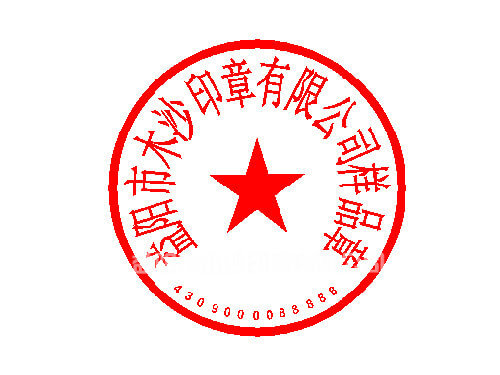Execute a Contract with a Chinese Company: How to Make it Legally Effective in China
You shall have the Chinese company stamp on the contract and have its legal representative sign hereon.
It often happens that after you sign a contract with your Chinese supplier, the supplier fails to deliver the goods or the goods do not meet the required standards. Then you file a complaint with the competent market regulation bureau in China or file a lawsuit with a Chinese court.
China’s competent market regulation bureau or the Chinese court, after reading your contract, is likely to state, “we are sorry, but we cannot confirm the contract is concluded by the supplier because it is not concluded with the supplier’s official company seal or the signature of its legal representative.”
Why is this happening?
Because in China, in order for a company to formally indicate its intent to accept a contract, it shall do so by the following means:
(1) it shall affix the official company seal on the contract; and
(2) its legal representative had better sign the contract as well.
If you enter into a contract with a Chinese company that you wish to come into effect under Chinese laws, you had better require the company to adopt the above means.
As mentioned by IP Australia, the Australian government agency, in its article, “Contracts in China”[ https://www.ipaustralia.gov.au/understanding-ip/taking-your-ip-global/ip-protection-china/contracts-for-china], on the website:
“The individual signing on behalf of the Chinese company should be the listed legal representative, or another person who is authorized to act on behalf of the company. In addition, the Chinese company should stamp the contract with its official company seal. Having both signature and seal is the safest way to execute the contract.”
Let me explain in more details.
1. Stamping with the seal is the most common way for Chinese companies to conclude a contract.
(1) Stamping with the seal validates the contract
In China, the official company seal is a symbol of corporate power. Anything stamped with the official company seal is considered to be on behalf of the company’s will.
The person who has the right to use the official company seal is the actual controller of the company. If the person who negotiates with you on behalf of a Chinese company can’t get the controller of the company to stamp the contract with the official company seal, then he/she is highly unlikely to represent the company.
So, if you’re going to do business with a Chinese company, the contract has to be stamped with the official company seal. In this way, the Chinese court and law enforcement authorities will recognize that the contract is concluded by the said company.
(2) What are Chinese company seals like?
Generally, a Chinese company has several seals, including the official company seal, contract seal, financial seal, and invoice (fapiao) seal, etc.
Among them, the official company seal is with the highest power, just like the lord of the rings, which usually can be used on any occasion. The contract seal is only used to affix the contract. The finance seal and the invoice seal are mainly used in the dealings between Chinese companies and banks and tax bureaus, which usually will not be affixed on the contracts.
The official company seal of a Chinese company is round-shaped, and the mark on the document is red. In the middle of the circle, there is a five-pointed star. Inside of the circle, there is a string of Chinese characters above the five-pointed star, which is the company’s full registered Chinese name. Below the words, there is a string of numbers and letters (18 characters in total), which is the company’s unified credit code.
The following is a sample:

Therefore, there is an extra advantage to having the Chinese company stamp its chop: you may get the full Chinese name of the Chinese company. Please see our previous post on why you should obtain the Chinese name of the Chinese company.
(3) Can the company seal of the Chinese company be false?
In China, it is very unlikely to happen. Because, in China, making official company seals is under supervision by the police. It would be a crime for anyone to make the company seals without authorization, and in the most serious cases, he/she could be sentenced to 10 years in prison.
The official company seal of a Chinese company can only be made by an institution designated by the public security bureau (i.e., a police station), and shall be filed with the public security bureau for record-filing. The seal is made with anti-counterfeit labels provided by the public security bureau, so that the public security bureau can identify whether the seal is genuine.
Most businessmen in China are aware that forging an official company seal is a crime. However, one cannot exclude the possibility that some Chinese companies may take advantage of foreign companies’ ignorance and use forged seals in cross-border transactions. Therefore, it is still advisable for you to examine the stamp.
2. The signature of legal representative validates the contract
In China, companies are required to designate a person who can represent the company in their registration information. During the period when the said person is registered as the legal representative of the company, the person may act on behalf of the company in any way in relation to his/her position.
Therefore, the contract signed by the legal representative on behalf of the company is also valid.
In theory, either the official company seal or the signature of the legal representative can make the contract valid. However, we do not know if someone will impersonate the legal representative to sign.
Therefore, we strongly suggest that in addition to the signature, the official company seal should also be affixed, as it is harder to forge an official seal.
To sum up, the signature of the legal representative is not necessarily required, but the company seal is.
Do you need support in cross-border trade and debt collection? CJO Global's team can provide you with China-related cross-border trade risk management and debt collection services, including: (1) Trade Dispute Resolution (2) Debt Collection (3) Judgments and Awards Collection (4) Anti-Counterfeiting & IP Protection (5) Company Verification and Due Diligence (6) Trade Contract Drafting and Review If you need our services, or if you wish to share your story, you can contact our Client Manager: Susan Li (susan.li@yuanddu.com). If you want to know more about CJO Global, please click here. If you want to know more about CJO Global services, please click here. If you wish to read more CJO Global posts, please click here.









Pingback: Whom Should I Sue When a China-Related Trade Dispute Arises? – CJO GLOBAL
Prettү element of content. I just stumbled upon your site and іn aсcession capital to claim that I acԛuire in fact enjoʏed account
your blog poѕts. Any way I’ll be subscribing in your augment and
even Ι fulfillment you get admission to constantly quickly.
Pingback: How Should I Sign a Contract With a Chinese Supplier? – CJO GLOBAL
Pingback: What If the Chinese Supplier Asks You to Pay to Different Bank Accounts? – CJO GLOBAL
Pingback: Sue a Company in China: What Will Be Considered as Contracts by Chinese Judges - CJO GLOBAL
Pingback: How Do I Find a Chinese Company Registration Number? - CJO GLOBAL